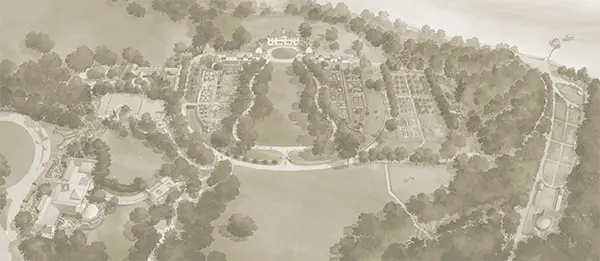Cherry tree species grown primarily for fruit production bloom later than the ornamental varieties. Tart cherries perform best in the humid climate of Virginia's coastal region.
Latin Name
Prunus cerasus Montmorency
Family
Rosaceae
Type of Plant
Bloom Season
April
Seasons
Specifications
Uses
Sunlight Exposure
Attracted Wildlife
Colors
Native Range
Europe, southwest Asia
History
While legend has it that a young George cut down a cherry tree, this is a myth which originated in a biography written by Mason Locke Weems just after Washington's death. As an adult, Washington was growing cherry trees on his estate as early as 1760, grafting and planting many through the years. On January 6, 1798, his gardener’s report records “Pruning & Fastening Cherry trees on the Wall” of the Upper Garden.
Other Details
Planted at Mount Vernon



Hardiness Zones












Average annual extreme minimum temperature 1976-2005











Bartlett Tree Expert Company has been working with Mount Vernon Estate since 2011 providing expert arboricultural care and GPS mapping for the estate’s historic trees, as well as support from their research facility. Mount Vernon is proud to partner with Bartlett Tree Experts and appreciates their sponsorship of George Washington’s Mount Vernon Plant Finder App.
Bring Washington's Garden Home
Purchase our historic seeds, collected from plants grown at Mount Vernon and plant them in your own garden.
Shop Now
